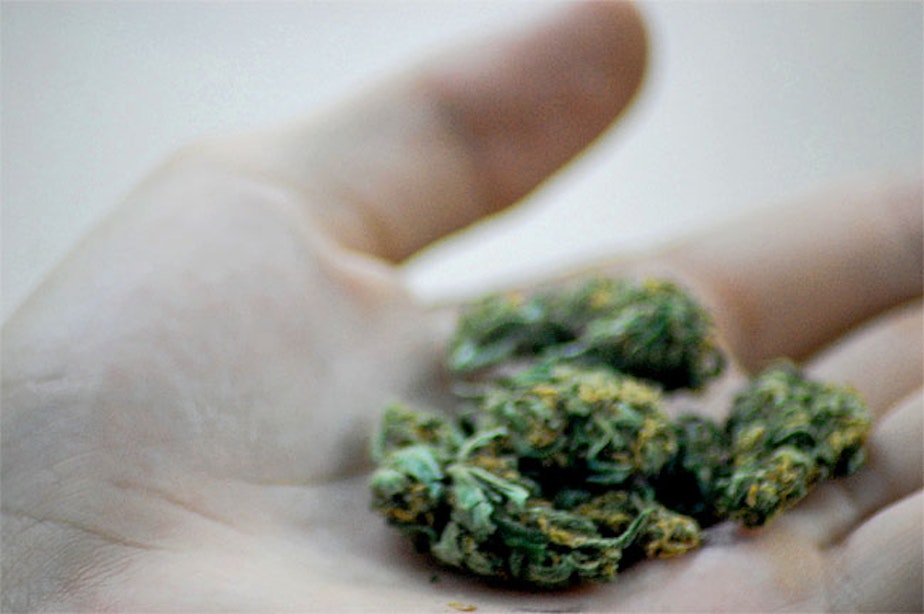Which Plants Will Kick Off Legal Pot Sales? State Regulators Don't Want To Know

State officials promise that Washington’s new legal marijuana market will be airtight, and that plants will be tracked “from seed to sale.”
But which plants will be the Adam and Eve of legal pot? Turns out, state regulators don’t really want to know.
The rules are deliberately vague. The state says that within 15 days of receiving a license and starting production, the producer must have all the plants on the premises. They also need to be logged into a tracking system from that point forward.
John Davis, who heads the Coalition for Cannabis Standards and Ethics, owns a medical marijuana dispensary in West Seattle and is applying to open a state-licensed retail store across the street from the dispensary. But once the 15 days have passed, he would not be able to transfer marijuana between the two locations.
“So what they’re saying is, ‘Go out into the world, get all the plants you need, shove them in a room, right? Close the door, leave it alone for 15 days and at the end of the 15 days it’s legal,’” Davis said. “And you know, as funny as that sounds, you have to understand, it’s got to come from somewhere.”
Juddy Rosellison grows medical marijuana and has applied for a state producer’s license. He stopped off in Arlington on a recent weeknight to chat with some other potential licensees.
Rosellison joked that getting the legal marijuana plants is no problem: “Santa Claus comes down the chimney and puts them in there!”
Members of the group said that barring a North Pole solution, people could smuggle marijuana across the border or order it online. But in truth, most of those plants are probably growing here in Washington right now. They just need to be brought into the new state system.
Brian Smith is the spokesman for the Washington State Liquor Control Board, which oversees recreational marijuana. He said state officials won’t ask any licensed producers where their plants came from.
But “once they get into our system they’re going to have to be able to show where it is at all times,” Smith said. “It’s just one admittedly awkward part of the implementation that they have to start somewhere.”
Smith said the idea is to entice existing growers into the new system created by the passage of Initiative 502 in November 2012.
“The board recognizes that many of the people who are going over to be a producer are growing marijuana now, whether they’re growing it for medical marijuana purposes or for any other purpose,” Smith said. “We want them to move over and be under the state-sanctioned system of the recreational market.”
Once the state signs off after the 15-day period, producers could not bring in new plants except those purchased from another state-licensed producer.
The lead-up to state-licensed marijuana production could be a dicey time for growers, who will face security risks as they establish their businesses.
Rosellison said it’s nerve-wracking to think about transporting valuable, federally illegal marijuana plants to new facilities during the 15-day window. But if he’s pulled over during the process, Rosellison said he’ll tell the police officer he has a license – to produce marijuana that is – and ask the officer for an escort.

